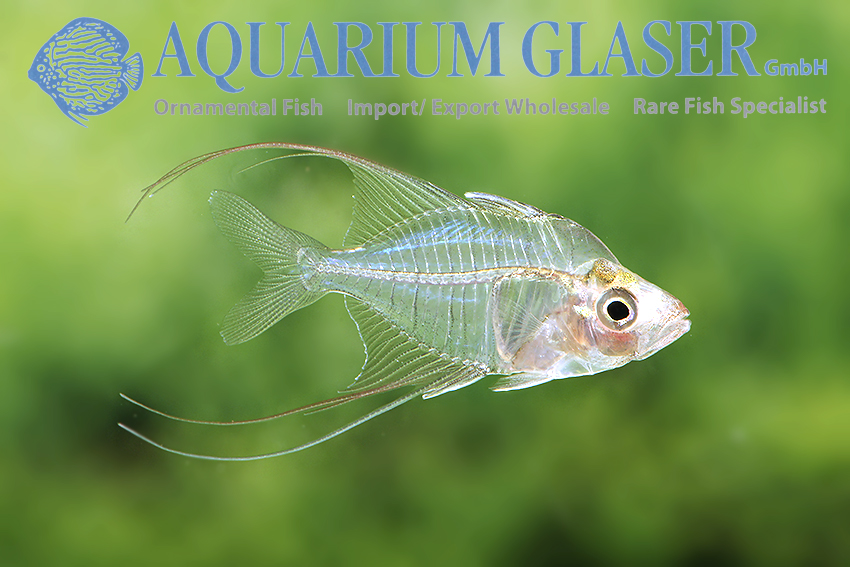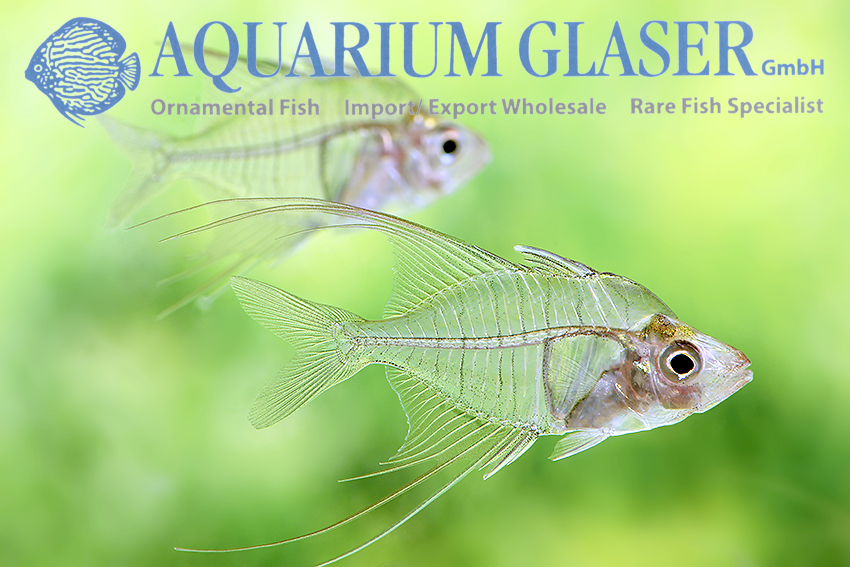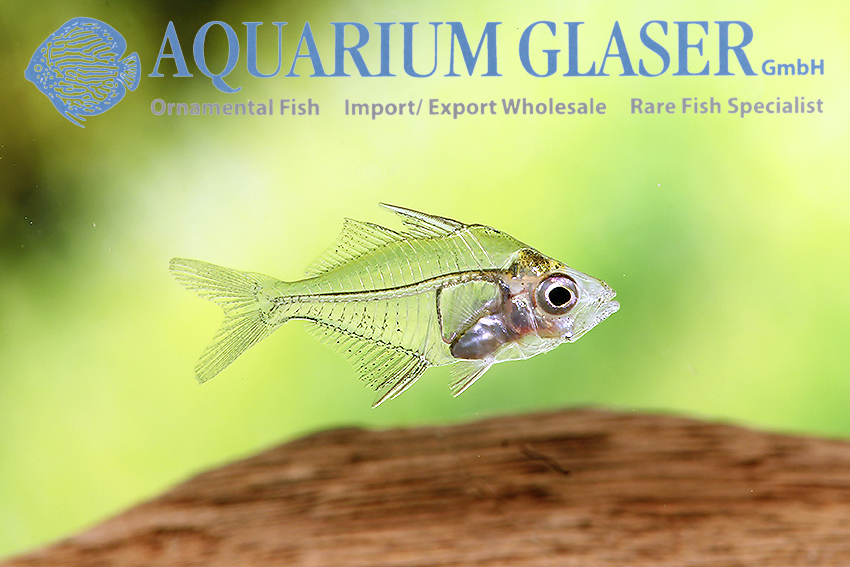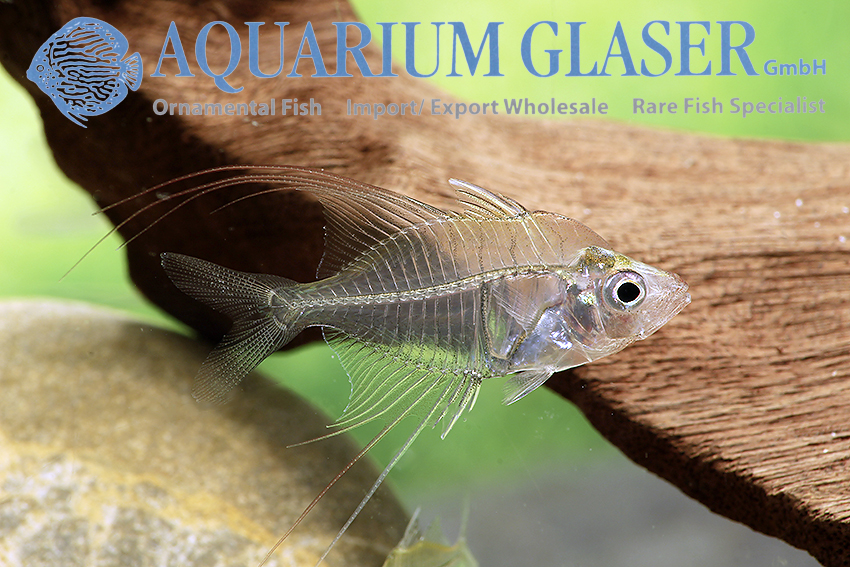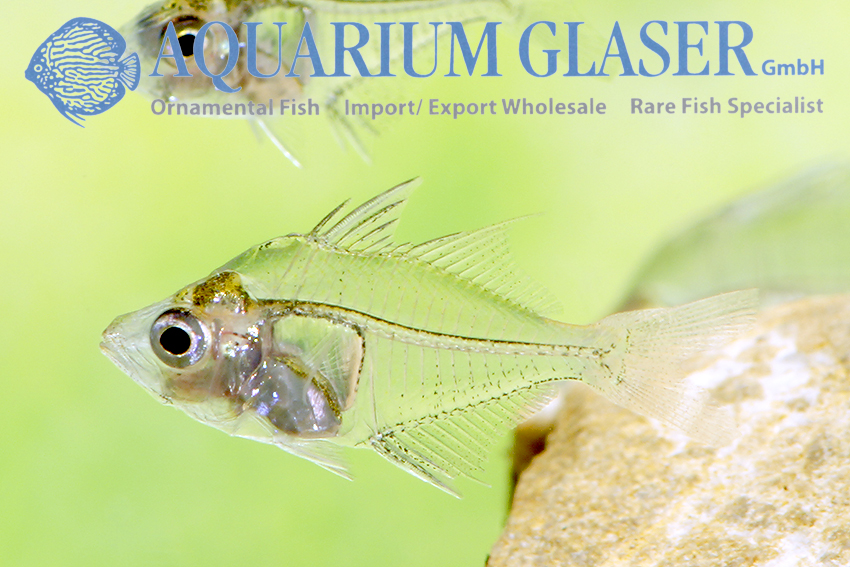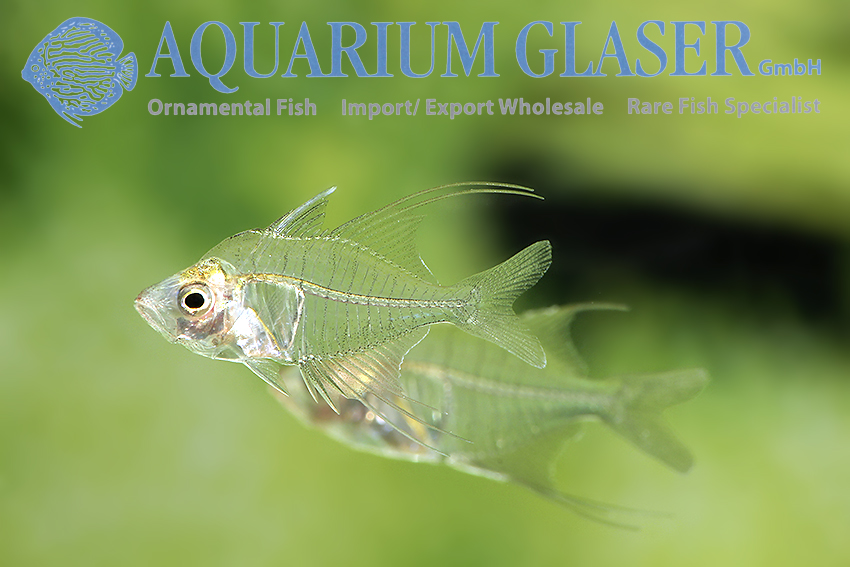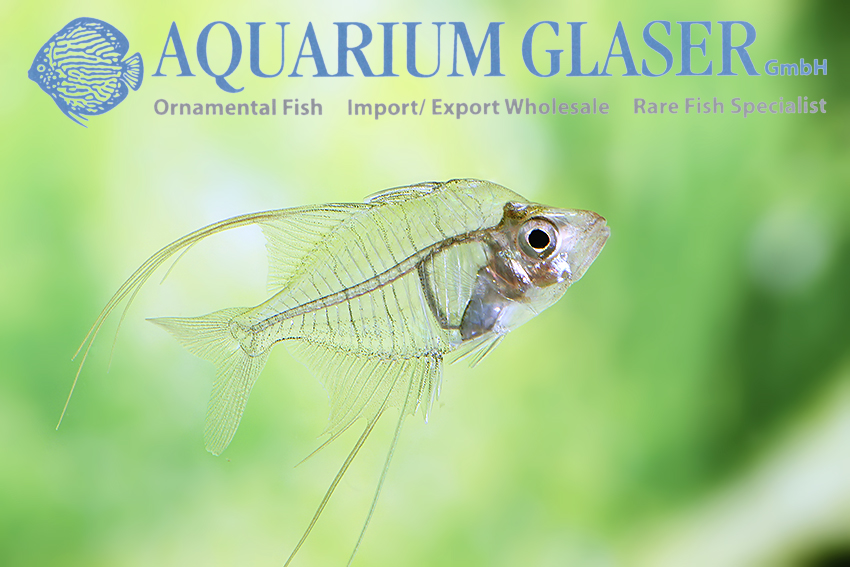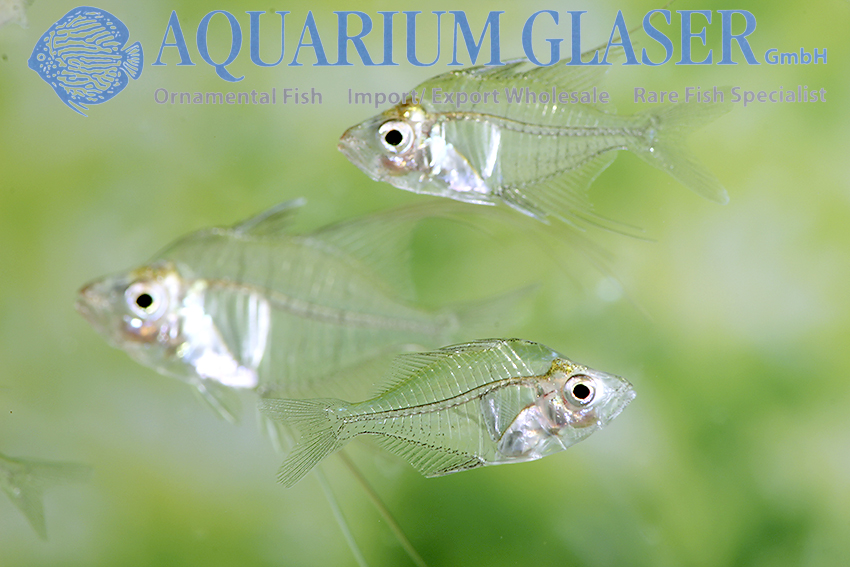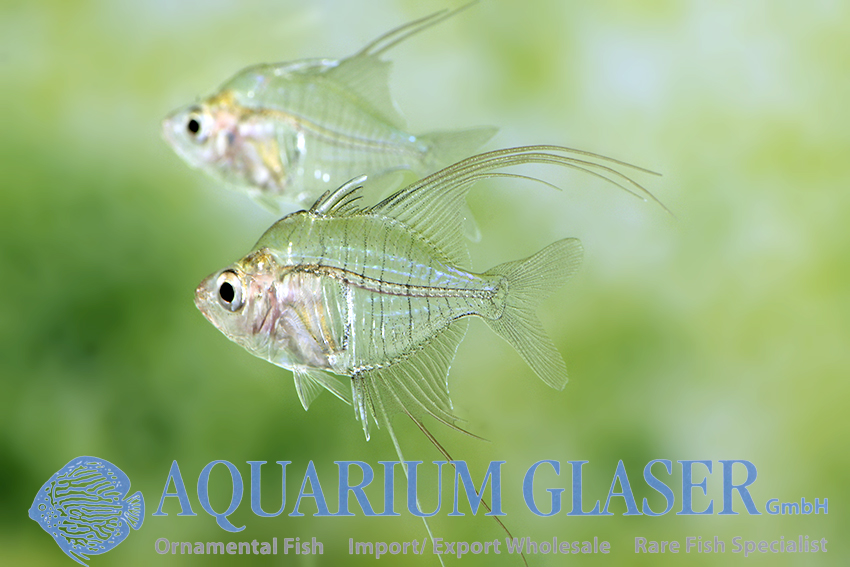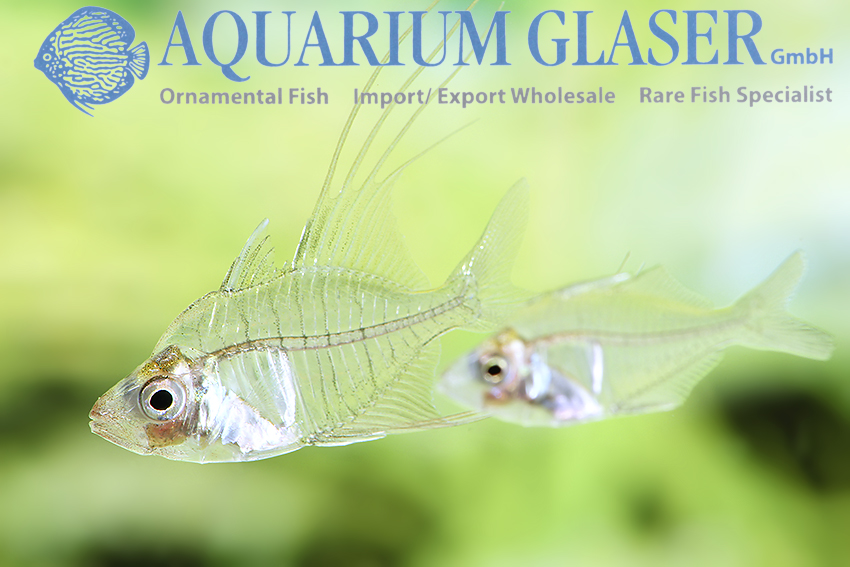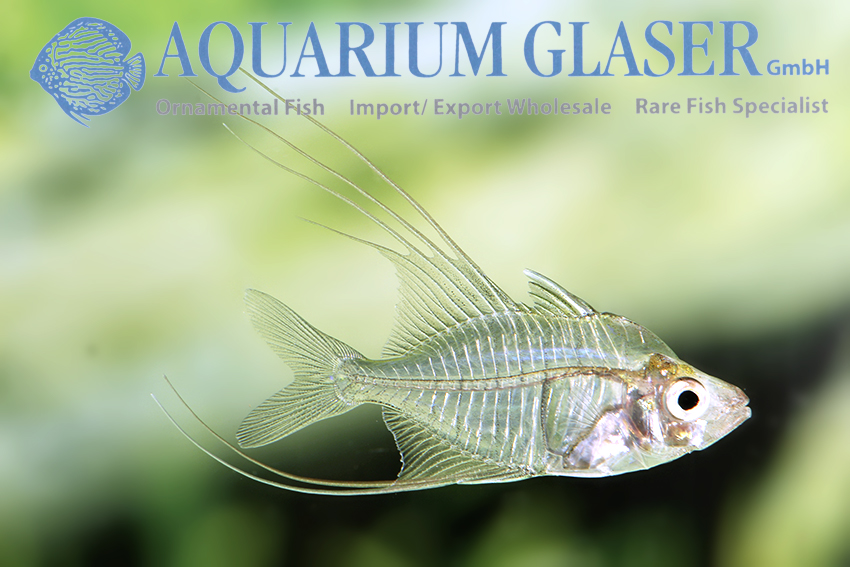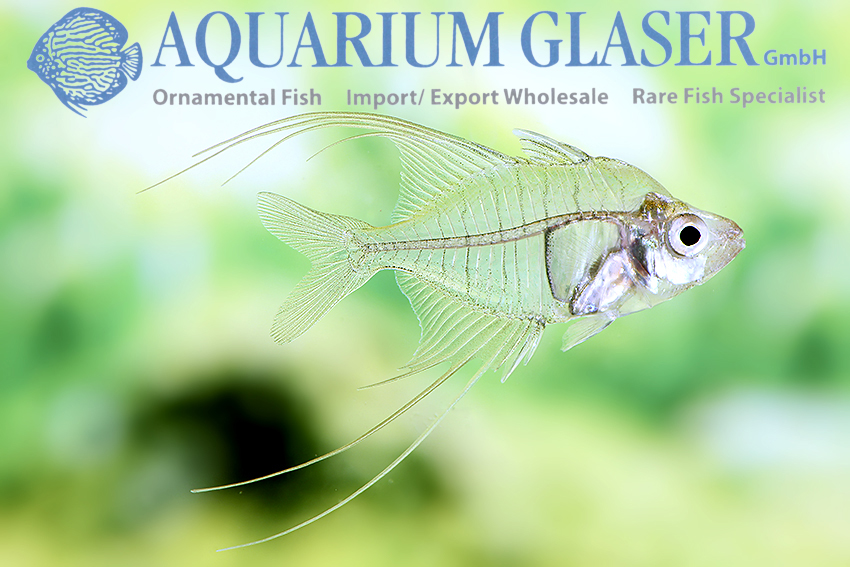A very wonderful dwarf glassfish reached us from Indonesia: Gymnochanda flamea, the red filamentous glassfish. All Gymnochanda species (G. filamentosa, G. flamea, G. limi, G.ploegi and G. verae) are pure freshwater fish, you should never add salt to the water.
Only two species, G. flamea (South-Borneo) and G. filamentosa (Malaysia, Sumatra (?), West-Borneo) have thread-like long dorsal and anal fin rays, red in G. flamea, white-blue in G. filamentosa.
The care of the cute, maximum 4 cm long animals is not very difficult, but they only eat live food. Among each other they are very peaceful, even against other fish, but one should – if at all – only keep these treasures with other tiny and peaceful species. Soft, slightly acidic water (pH 6-7) and a temperature of 24-28°C are recommended.
The animals are egglayers without brood care. The eggs are deposited in fine-grained plants. As far as we know, no successful rearing of the brood under aquarium conditions has been reported so far.
For our customers: the animals have code 419642 on our stocklist. Please note that we only supply the wholesale trade.
Text & photos: Frank Schäfer





